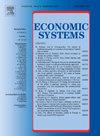Sustainable energy deployment in developing countries: The role of composition of energy aid
Abstract
Climate mitigation in developing nations calls for a shift to renewable technologies from fossil fuels. However, such transformative change requires enormous concessional funding in the energy sector. This paper examines the impact of energy aid and its composition on the transition to clean energy infrastructure in the power sector in 67 developing countries during the period 2002–2017. The analysis is also conducted by segregating aggregate renewable technologies into hydro and non-hydro sources. Applying system GMM and panel quantile regression techniques, we find that the effectiveness of energy aid depends upon its composition and the maturity of renewable technology in the recipient countries. Renewable and distribution energy aid benefits the transition only with hydro sources and has a counter-productive effect on non-hydro renewable technologies, such as solar and wind. In contrast, findings reveal that energy aid for non-renewable energy generation and policy hinder the transition process with both hydro and non-hydro renewable technologies. These findings warrant a shift in the composition and technology target of energy aid by the donors in order to foster climate mitigation and mobilize private investments in relatively less developed non-hydro renewable technologies.

 求助内容:
求助内容: 应助结果提醒方式:
应助结果提醒方式:


